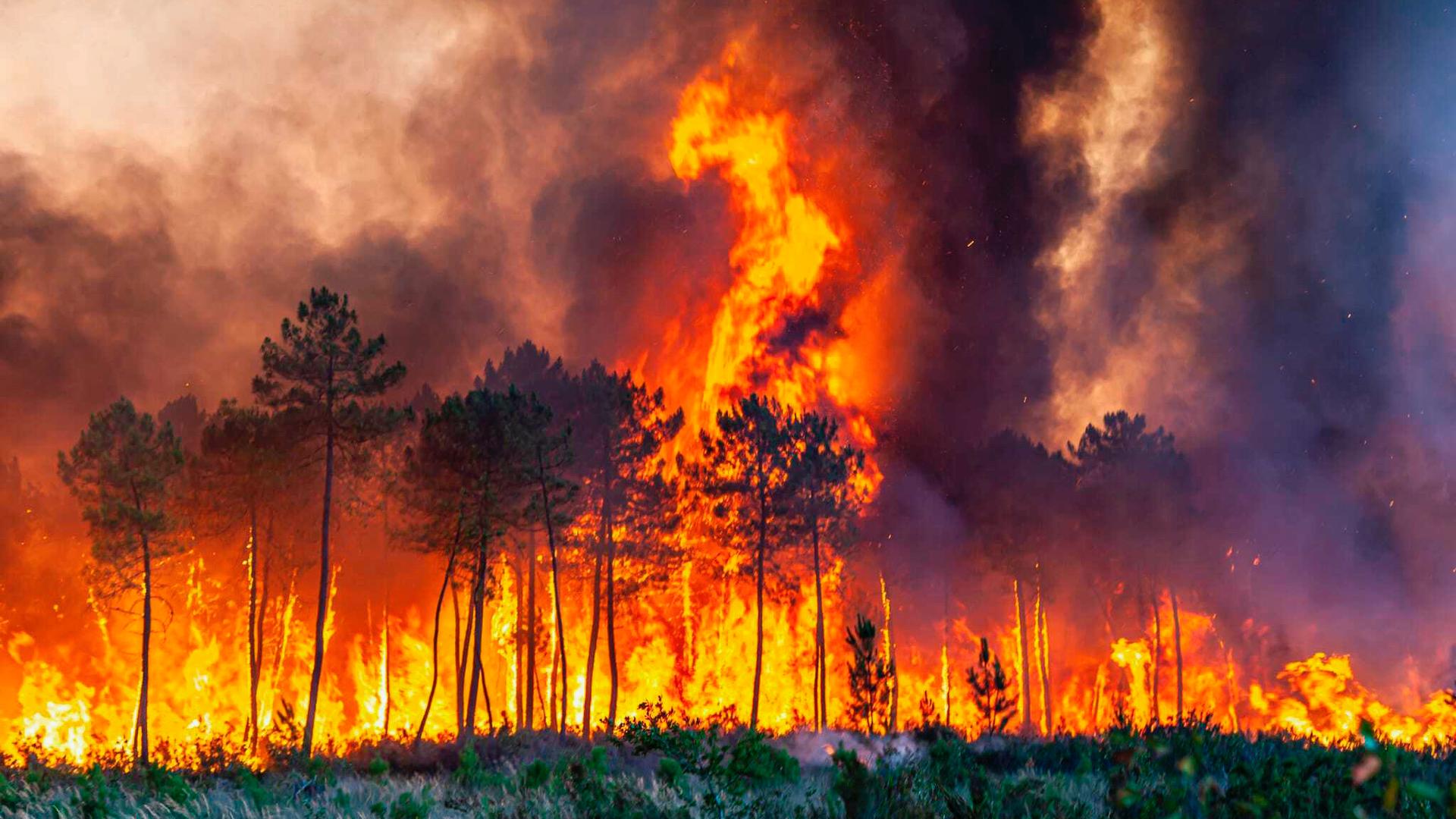Europe broils in heat wave that fuels fires in France, Spain
A heat wave broiling Europe spilled northward Monday to Britainand fueled ferocious wildfires in Spain and France, which evacuated thousands of people and scrambled water-bombing planes and firefighters to battle flames spreading through tinder-dry forests.
Two people were killed in the blazes in Spain that the country’s prime minister linked to global warming, saying: “Climate change kills.”
In recent days, unusually high temperatures have gripped swaths of Europe, triggering wildfires from Portugal to the Balkan region. Some countries are also experiencing extended droughts. Climate change makes such life-threatening extremes less of a rarity — and has brought heat waves even to places like Britain, which braced for possibly record-breaking temperatures.
The hot weather in the UK was expected to be so severe this week that train operators warned it could warp the rails and some schools set up wading pools to help children cool off.
French forecasters also warned of possible record temperatures as swirling hot winds complicated firefighting efforts in the country’s southwest.
“The fire is literally exploding,” said Marc Vermeulen, the regional fire service chief who described tree trunks shattering as flames consumed them, sending burning embers into the air and further spreading the blazes.
“We’re facing extreme and exceptional circumstances,” he said.
Authorities started evacuating more towns, moving another 11,500 people from areas at risk of finding themselves in the path of the fires and their thick clouds of choking smoke. That will take the number of people who have been forced out of their homes in the Gironde region to nearly 28,000 since the wildfires began July 12.
Three additional planes were sent to join six others already fighting the fires, scooping up seawater into their tanks and making repeated runs through dense clouds of smoke, the Interior Ministry said Sunday night.
More than 200 reinforcements headed to join the 1,500-strong force of firefighters battling night and day to contain the blazes in the Gironde, where flames neared prized vineyards and the Arcachon maritime basin famed for its oysters and beaches.
Spain, meanwhile, reported a second fatality in two days as it battled its own blazes. The body of a 69-year-old sheep farmer was found Monday in the same hilly area where a 62-year-old firefighter died a day earlier when he was trapped by flames in the northwestern Zamora province. More than 30 forest fires around Spain have forced the evacuation of thousands of people and blackened 220 square kilometers (85 square miles) of forest and scrub.
Climate scientists say heat waves are more intense, more frequent and longer because of climate change — and coupled with droughts have made wildfires harder to fight. They say climate change will continue to make weather more extreme and wildfires more frequent and destructive.
“Climate change kills,” Spanish Prime Minister Pedro Sánchez said Monday during a visit to the Extremadura region, where firefighters tackled three major blazes. “It kills people, it kills our ecosystems and biodiversity.”
Teresa Ribera, Spain’s minister for ecological transition, described her country as “literally under fire” as she attended talks on climate change in Berlin.
She warned of “terrifying prospects still for the days to come” — after more than 10 days of temperatures over 40 degrees Celsius (104 degrees Fahrenheit), cooling only moderately at night.
According to Spain’s Carlos III Institute, which records daily temperature-related fatalities, 237 deaths were attributed to high temperatures from July 10 to 14. That was compared to 25 heat-related deaths the previous week.
The heat wave in Spain is forecast to ease on Tuesday, but the respite will be brief as temperatures rise again on Wednesday, especially in the dry western Extremadura region.
In Britain, officials have issued the first-ever extreme heat warning, and the weather service forecast that the record high of 38.7 C (101.7 F), set in 2019, could be shattered.
“Forty-one isn’t off the cards,” said Met Office CEO Penelope Endersby. “We’ve even got some 43s in the model, but we’re hoping it won’t be as high as that.”
The Balkans region has also seen sporadic wildfires, and is expecting the worst of the heat later this week.
Early on Monday, authorities in Slovenia said firefighters managed to bring one fire under control. Croatia sent a water-dropping plane there to help battle the flames after struggling last week with its own wildfires along the Adriatic Sea coast. A fire in Sibenik forced some people to evacuate their homes but was later extinguished.
In Portugal, much cooler weather Monday helped fire crews make progress against blazes. More than 600 firefighters attended four major fires in northern Portugal.
